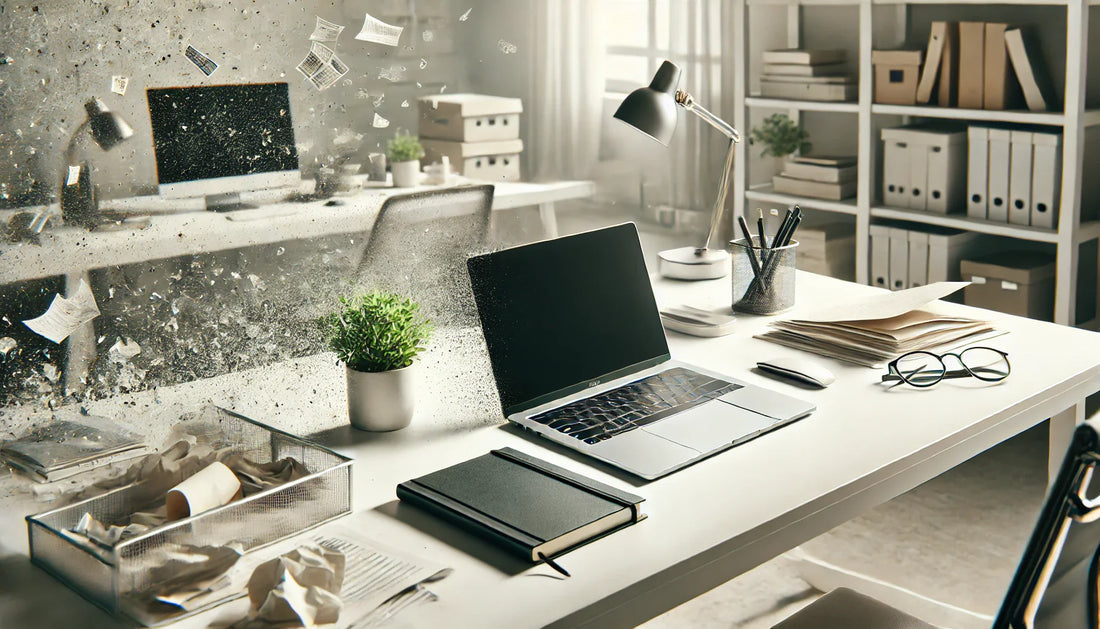
The Science Behind a Clutter-Free Desk and Clear Thinking
Share
We’ve all felt it: the drag of trying to focus at a messy desk. Piles of paper, tangled cables, and scattered pens seem harmless, but research shows they have a direct impact on how our brains process information. A cluttered environment competes for your attention, while a clear desk supports sharper thinking and better decision-making.
Neuroscience explains why. Visual clutter overloads the brain’s processing capacity, making it harder to filter out distractions. This constant “background noise” reduces focus and increases stress. By contrast, a tidy workspace gives your mind a calmer baseline, freeing up mental energy for problem-solving and creativity.
The benefits aren’t just psychological. Studies link organized desks to increased productivity and even improved mood. When your environment feels under control, it signals to your brain that you’re capable of handling tasks effectively. Small steps, like filing papers immediately or using cable organizers, can make a measurable difference.
TyporaOffice offers desk accessories designed to support this clarity—sleek trays for documents, minimal organizers for stationery, and lighting that keeps the space bright but balanced. These aren’t just decor pieces; they’re tools that reinforce mental clarity through physical order.
Practical examples include setting a two-minute rule: if an item doesn’t belong on your desk, put it away right after use. Or, try ending your workday with a quick reset, so each morning begins with a clear, inviting workspace. Over time, these habits create an environment where thinking flows more easily.
A clutter-free desk isn’t about being sterile—it’s about creating space for focus. When you remove distractions from your environment, you also remove barriers in your mind, letting your best ideas surface.
